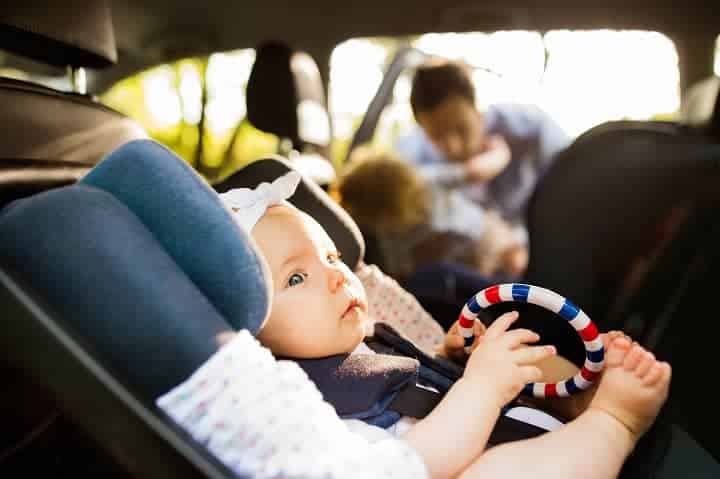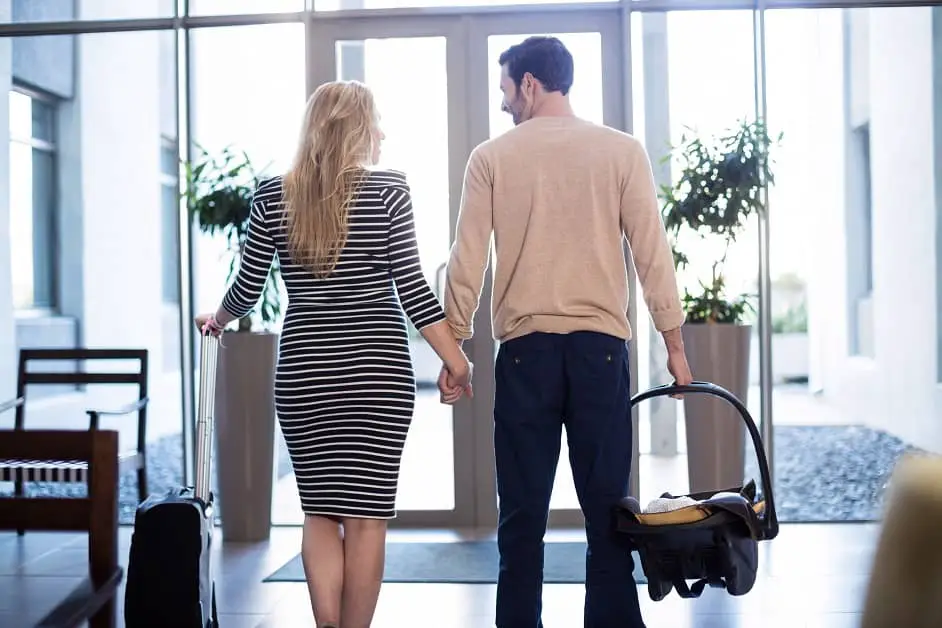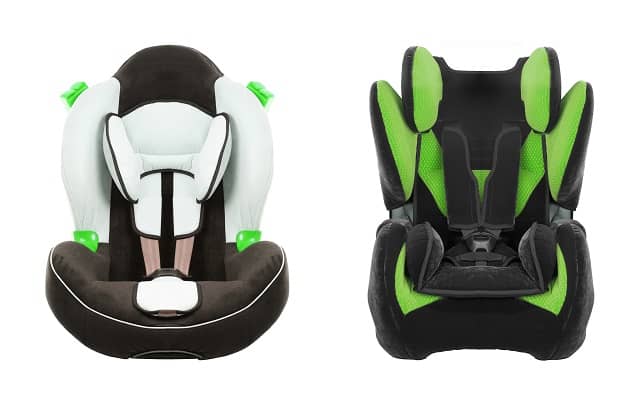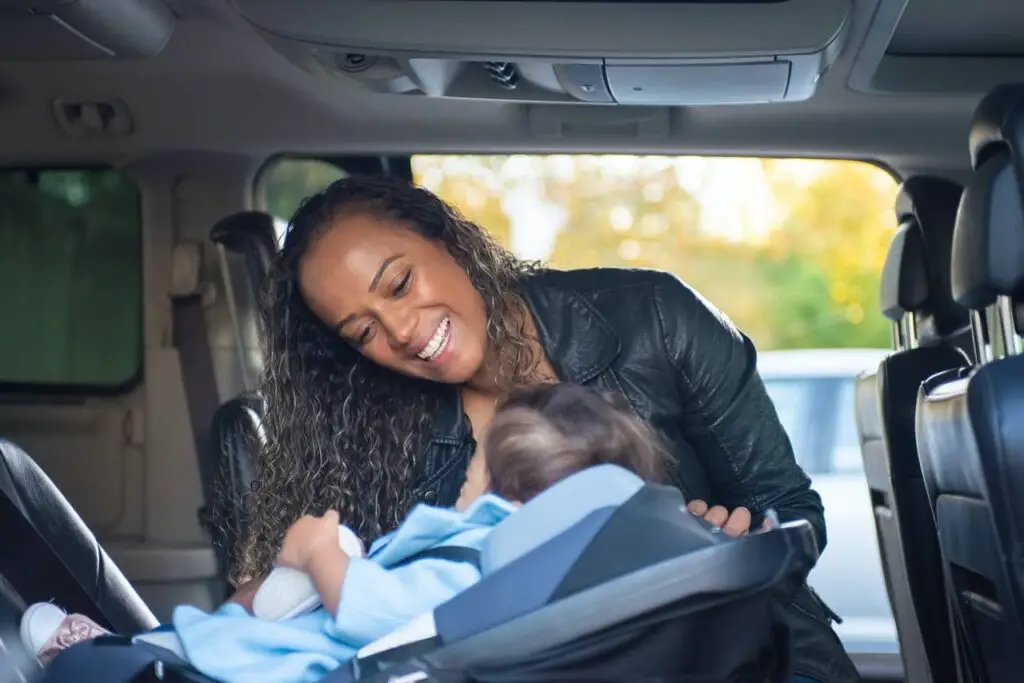How Soon Can a Newborn Travel Long Distance by Car
How soon can a newborn travel long distance by car is an overwhelming question first-time parents ask, and it is very understandable. Being tender and fragile, you want the best for their safety.
A very quick answer to that will be that there are no laws or safety implications determined for the age of a baby before such infant can travel by car. As such, a newborn can travel by car right from when you are discharged from the hospital.
According to the American Academy of Pediatrics on travel safety tips for car, airplane, and international travel, no specification was given on a child’s age to travel by any of these means but mentions “infants and young children” and gives safety tips for traveling.
NCT recommends, according to experts, that infants less than 4 weeks should not be in a car seat for more than 30 minutes and older babies and children of all ages, not more than 2 hours.
However, there are the general basic guidelines to be aware of, which include:
- Using the right infant car seat, which should be rear-facing and installed securely in the back seat.
- Following proper guidelines on feeding a baby in the car seat, and
- The 2-hour rule and making multiple stops every 30 minutes if the baby is under 4 weeks – requires adequate planning beforehand.
On the other hand, it is a different ball game when traveling by air.
In this article, I’ll cover all about traveling with a newborn by car and by air.
How Soon After Birth Can a Baby Travel by Car
According to the American Academy of Pediatrics, a baby should have their first ride from the hospital in a rear-facing car seat.
This implies that right from when you were pregnant, you must have been planning to buy a car seat at least 3 weeks before your due date, according to the American College of Obstetricians and Gynecologists. As soon as you are discharged, you can travel by car.

Safety Guideline When traveling by Car
- Use a Car Seat – as recommended by AAP, infants are to ride in a rear-facing car seat installed in the back seat.
- Be aware of the state car seat laws – since you’ll be traveling, you should get familiar with the car seat laws of the state you will be arriving at. While some states do not specify on car seat type or car seat position (front seat or back seat), some are clear about these in the laws and attract big fines when violated. You can find all states’ car seat laws through this page.
- Type of vehicle – if you own a single cab truck, you want to be sure you can install your car seat in the truck (airbag must be turned off, lap/shoulder belt available) and that your destination state permits car seats in the front seat. For example, Colorado requires that infants under one year and weighing under 20 lbs. ride in the back seat, and there are no exemptions.
- Feeding your baby – while there are no laws that forbid feeding in a car seat, you want to ensure you, your baby, and other passengers are restrained in the vehicle while in motion. Therefore, when you need to feed your child, you have to make a stop and feed them properly. You can read more helpful guidelines on feeding a baby in the car seat.
- Frequent stop-overs and the 2-hour rule – because you have to tend to your baby now and then all through the journey, it is recommended you make frequent stops to feed them, change diapers, and even take a rest. Coincidentally, there is the 2-hour rule which requires that a child above 4 weeks doesn’t remain in the car seat for more than 2 hours in a 24-hour period and infants under 4 weeks not more than 30 minutes as recommended by car seat manufacturers.
- Proper dressing based on the weather – depending on the season, you want to ensure your child is well dressed for the weather, so their comfort and safety are not compromised. If in summer, you want to keep your baby cool in the car seat, and if in winter, keep them warm.
- Finding a pediatrician – One of the primary things you want to be conscious about when you travel is your baby’s health in a new state. The American Academy of Pediatrics recommends finding a pediatrician ahead of when you’ll be in the new city. A list of Pediatric centers for each state can be found in the link above.
General Tips Travelling with a Newborn by Car
Now that we have looked at safety guidelines to be aware of, I’ll now give extra tips to ease your ride with your newborn.
- Extra supplies – have lots of diapers/wipes and a washcloth you can use for spit-up. A blanket you can use to put your baby on when you’re changing the diapers. Formula, or breastfeeding.
- Cleaning supplies – you will need this to clean your baby car seat when it gets a little messy. You don’t want liquid drops getting stuck and becoming difficult to clean later. Remember to make hands clean when feeding and after changing diapers – hand wipe with vinegar will serve. Have some extra bags where you can keep changed diapers in.
- Consider night trip if possible – since the baby will usually be asleep by night, you can consider traveling by night. Ensure you’re fit to ride by night and it is safe.
Safety Guidelines When traveling by Air
Traveling with a baby by air is an entirely different aspect of its own that requires some advanced planning and preparation, as recommended by the American Academy of Pediatrics on answering Parents’ FAQs on flying with a baby.
Babies are exposed to more health risks when traveling by air due to their low immune system, possible birth complications like preemies, oxygen levels on the plane, and the health situation of your destination state (for example, if there is a disease outbreak like measles).
According to Naomi Bardach, a pediatrician at the University of California San Francisco, babies are at risk of catching a viral infection like cough or cold when traveling on a plane which can also cause a fever for the baby.
Naomi recommends that your baby complete their first round of vaccines before flying by air, and that should be by 2-3 months of age. These vaccinations provides the baby adequate protection against preventable infections such as:
- Polio
- Tetanus,
- H. Influenza B (which causes meningitis and ear infections),
- Hepatitis B (which causes viral infection of the liver).
- Others include Diptheria, Pertussis, and Rotavirus
When a child is vaccinated, it takes a while for the baby’s immunity to build up to provide adequate protection, and this can take about 2 weeks.
Other safety tips when traveling by air recommended by AAP can be found here on family-friendly flying.
General Tips for Flying with a Newborn or Toddlers
- Have their infant seat on board the plane – Child restraint systems don’t count as luggage. Ensure the infant seat has a label that says FAA approved.
- Breastfeed or bottle-feed your baby at the time of takeoff. This helps relieve the pressure change between the outer and middle ear during takeoff and descent before landing.
- Have toys handy – this will keep the child busy for a good time on the flight. A plane toy can do the magic.
- Make them artistic – get a coloring book and colored pencils or crayons.
- Engage with children videos – get a tablet loaded with their favorite videos they can watch with headphones. Consider toys and books first before videos as a last resort. AAP does not encourage entertainment media for children under 2 years.
FAQs
Can infants travel by car?
Newborn/Infants (0-12 months) can travel long distances by car as soon as you have been discharged from the hospital, provided they are properly secured in a rear-facing car seat in the back seat, and you make frequent stops when the journey will be more than 30 minutes to feed or change diapers.
Can a 1-month-old baby travel by car?
Yes, a baby less than 4 weeks old can travel by car, but if the journey will be more than 30 minutes, you must consider making multiple stops. A child less than 4 weeks should not be in a car seat for more than 30 minutes, while older children, not more than 2 hours.
When can my baby fly on an airplane?
It is recommended that a baby has received at least the first round of vaccinations at up to 2 months to provide adequate immune protection against preventable infections before traveling by air.



